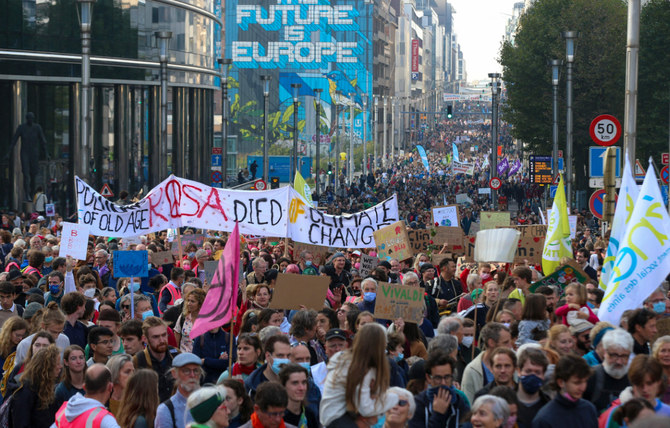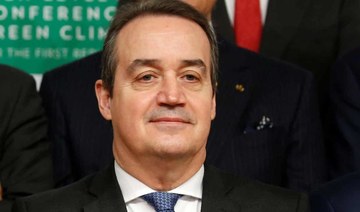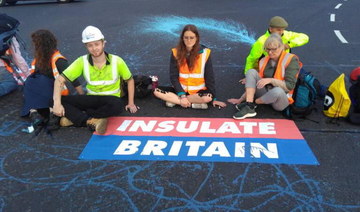PARIS: A hundred billion dollars every year — that's the aid promised more than a decade ago to help developing nations curb their carbon pollution and adapt to devastating climate impacts.
But rich countries have not delivered on that pledge, a failure that could undermine a critical COP26 climate summit in Glasgow next month already riven with tensions, experts say.
The vow to gradually ramp up aid for the Global South to $100 billion (86.5 billion euros) per year by 2020 was first made at the 2009 UN climate summit in Copenhagen.
A decade later, wealthy nations were still far from the mark, with the total below $80 billion in 2019, according to the OECD, which took on the role of tracking climate finance.
If only outright grants and not loans are considered, the amount drops by almost half, say NGOs that monitor money flows.
With a Democrat back in the White House, the US has doubled its aid and promises $11.4 billion per year by 2024, but it's still not enough to close the gap. Canada and Germany are expected to announce enhanced commitments before the Glasgow summit opens on October 31.
China may be the world's top carbon polluter today, accounting for more than a quarter of global emissions, but the United States and other rich countries are historically the main emitters of greenhouse gases.
COP26 host Boris Johnson recently reminded leaders at the UN that Britain had pioneered the industrial revolution and was the first country "to send enough acrid smoke into the atmosphere to disrupt the natural order".
"We understand that when developing countries look to us for help, we have to shoulder our responsibilities," the British Prime Minister continued.
One of the biggest challenges facing climate negotiations is a deficit of trust among parties, and climate finance may be the most fraught issue on the table.
"The shortfall in funds is costing lives and livelihoods," Sonam Wangi, chair of the Least Developed Countries (LDC) negotiating bloc, said in a statement.
"Developed countries delivering on their decade-old commitment to support vulnerable countries ... will be critical for building trust and accelerating the global response to climate change."
UN climate chief Patricia Espinosa agrees that living up to those promises could be a key for unlocking other logjams.
"The complexity of the outcome of COP26 is that it is not one or two or three decisions, it has to be a package," she told journalists.
"If we can get a good perspective regarding the $100 billion, that would ... give us the means to make progress on some other issues."
In 2009, $100 billion sounded like a lot of money, but the recent crescendo of heatwaves, flooding caused by extreme rainfall, drought and evermore powerful storms has made it clear that it's not nearly enough, experts agree.
The sum seems especially paltry compared to the multi-trillion dollar Covid recovery packages that have been cobbled together to prop up rich economies.
"A combined global fiscal response to the crisis of close to $12 trillion begs a question," climate finance experts commissioned by the UN wrote in a recent report.
"If a pandemic can provoke such a rapid and far-reaching response, at scale, surely the world can muster the necessary will to act with similar decisiveness and urgency in response to the climate crisis?"
"The $100 billion target therefore needs to be seen as a floor and not as a ceiling," the added.
Former Maldives president Mohamed Nasheed, representing the Climate Vulnerable Forum of 48 countries home to a billion people, said financing should be broadened to include sovereign debt relief.
"We are so threatened that we might not have an island or a country much longer, so it's hardly possible for us to pay the debt if we are not around," he said.
"Is it not then reasonable for climate vulnerable countries to call upon debt holders to restructure their debt?", he added, saying he would be taking this proposal to the Glasgow talks.
The $100 billion figure — earmarked for emissions reduction and preparing for future climate impact — has become a symbol of the perceived need for "climate justice", many observers point out.
The failure of rich nations to honour their pledge is especially galling in light of a separate track in the negotiations over "loss and damage", meant to cover the costs of climate-enhanced damages that have already occurred.
"The people and communities the least responsible for the rise in global emissions are facing the worst of the climate crisis right now," said Vanessa Nakate, a young climate activist from Uganda.




















